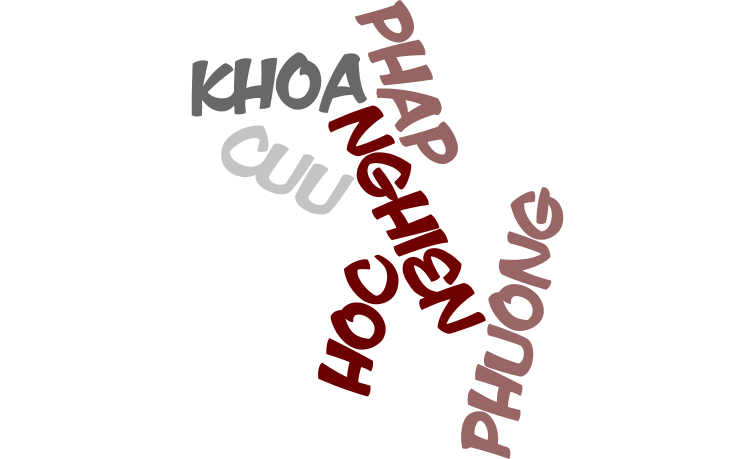This course provides a general introduction to
the discipline of IR and to major themes in world politics. It presents
different theoretical perspectives in the study of IR to engender an
appreciation of the complexity world politics. Major theories are Realism,
Liberalism, Marxism, and Constructivism. The central concepts in the field to
be covered include power and the role of power, anarchy, levels of analysis,
the causes of conflicts, actors in IR, the role of international and domestic
institutions. This course also introduces students to the nuts and bolts of
doing research in IR in order to allow students to appreciate the diversity of
methodological approaches. On the completion of this course, students should be
able to not only describe and explain contemporary debates and challenges in
international politics but also embark on their own research.
- Teacher: GV Lê Thị Phương Loan
This course consists of 6 units and 1 revision. For the first three lectures, each one consists of two parts: theory and practice. The other three lectures are interpretation exercises to improve the memorizing and note-taking skills. The last one is a revision. The practice focuses on familiar topics and concerned issues such as culture, tourism, environment, health, education, population and poverty. Unit 1 shows the difference between translation and interpretation, the roles and qualities required in an interpreter; introduce interpreting methods; analyze the interpretation process; emphasizes the importance of public speaking in interpretation. Unit 2 introduces types of memory, memory stages, causes of poor memory performance, and tips for effective memory. Unit 3 presents the key aspects of note-taking such as the reason, the time, the content, and the methods of note-taking during the interpretation.
- Teacher: GV Lê Thị Phương Loan
- Teacher: GV Trần Thị Thu
Học phần chuyên môn 2 (Quan hệ đối ngoại Việt Nam thời kỳ Đổi mới) dành cho SV ngành Quốc tế học - khóa tuyển sinh 2016-2020, hệ đại trà.
- Teacher: GV Trần Thị Thu
Khóa học kĩ năng tiếng Đọc - Viết dành cho SV năm thứ nhất, Khoa Quốc tế học, lớp đại trà.
- Teacher: GV Võ Nguyễn Thùy Trang
Skillful Listening and Speaking 2 - Units 1 - 5
- Teacher: GV Anthony Crawford
Phương pháp nghiên cứu khoa học là môn học cung cấp những kiến thức cơ sở về phương pháp nghiên cứu, các đường hướng và loại hình nghiên cứu cùng những thao tác nghiên cứu khoa học cơ bản khi tiếp cận một đề tài khoa học. Môn học trang bị cho người học kiến thức nền tảng về các loại hình, đường hướng để tiếp cận một đề tài nghiên cứu. Người học sẽ nắm được cách xác định mục đích, mục tiêu nghiên cứu, xác định vấn đề nghiên cứu và thiết kế nghiên cứu cùng phương pháp nghiên cứu phù hợp với mục đích mục tiêu nghiên cứu của đề tài. Người học cũng nắm được các bước thực hiện một đề cương sơ bộ với đề tài đã chọn.
Lecturer:
Nguyen Van Long, A/Prof. PhD.
Email: nvlong@ufl.udn.vn
Tel: (+84) 905 397 397
Site: http://scv.udn.vn/nvlong

- Teacher: GV Nguyễn Văn Long
Việc ứng dụng máy tính và công nghệ thông tin trong nghiên cứu và giảng dạy ngôn ngữ ngày nay đã tồn tại một thời gian dài và dần phát triển. Để công nghệ này có thể được áp dụng hiệu quả, bản thân người nghiên cứu, người dạy phải có hiểu biết đáng kể về bản chất và quá trình hoạt động của công nghệ trong khuôn khổ chuyên môn.
Học phần sẽ trình bày cho học viên về ứng dụng của máy tính cũng như các công nghệ khác hiện nay trong nghiên cứu và giảng dạy ngôn ngữ. Học phần sẽ bao gồm các khía cạnh lý thuyết và thực tiễn, dựa trên những tài liệu nghiên cứu về CALL cũng như các phương pháp giáo học pháp hiện hành trong giáo dục ngôn ngữ. Kết thúc học phần, học viên sẽ có khả năng tự phát triển dự án CALL của riêng mình.
Giảng viên:
Nguyễn Văn Long, Assoc. Prof. PhD.
Email: nvlong@ufl.udn.vn
Tel: (+84) 905 397 397
Site: http://scv.udn.vn/nvlong

- Teacher: GV Nguyễn Văn Long